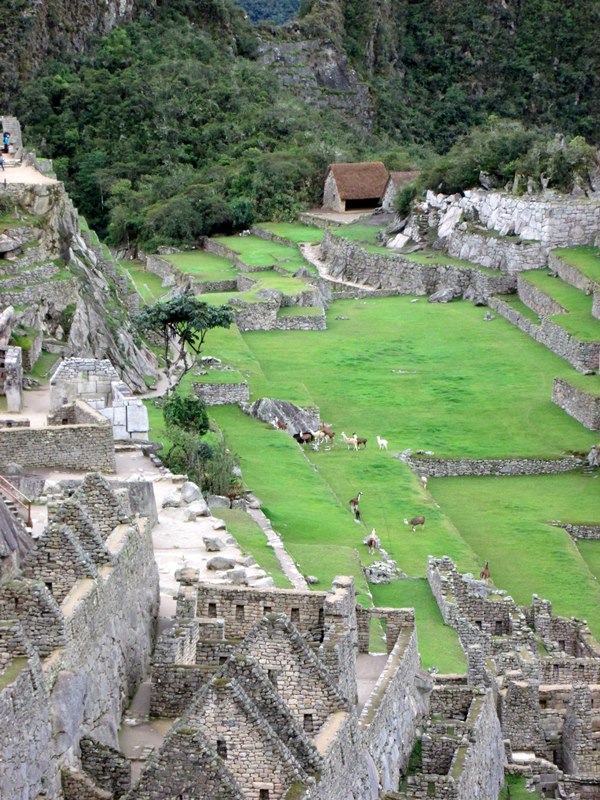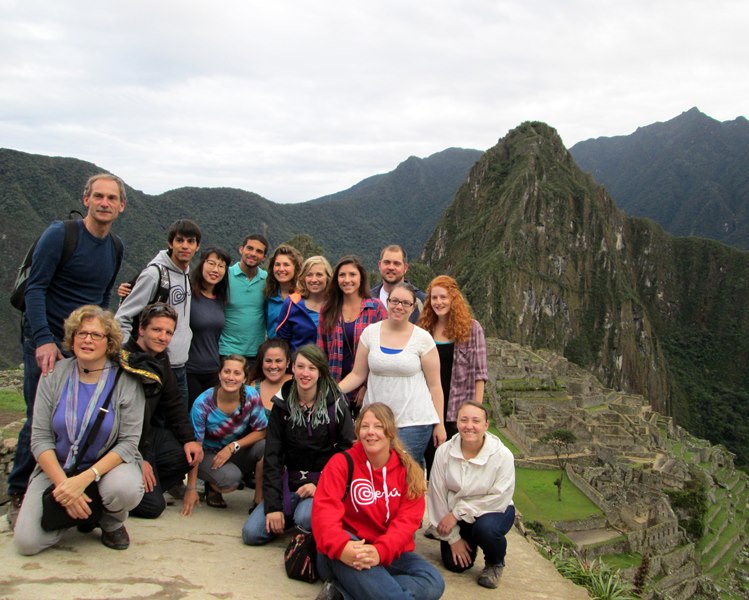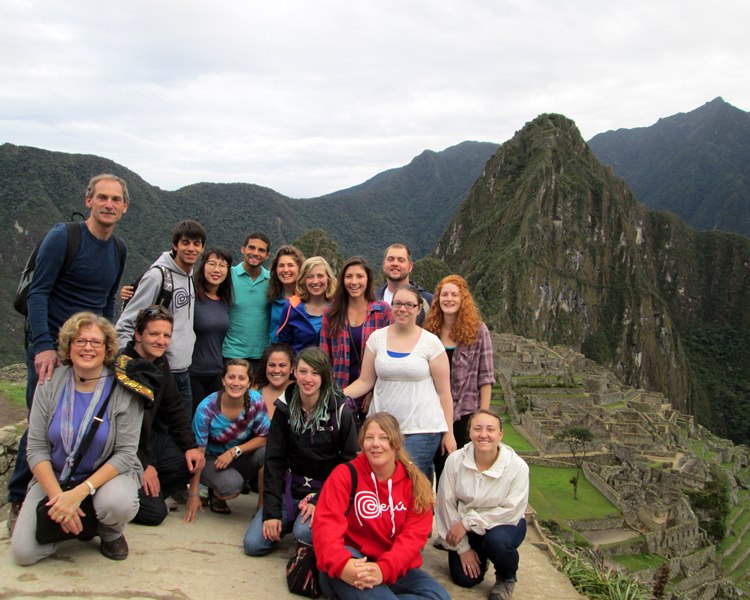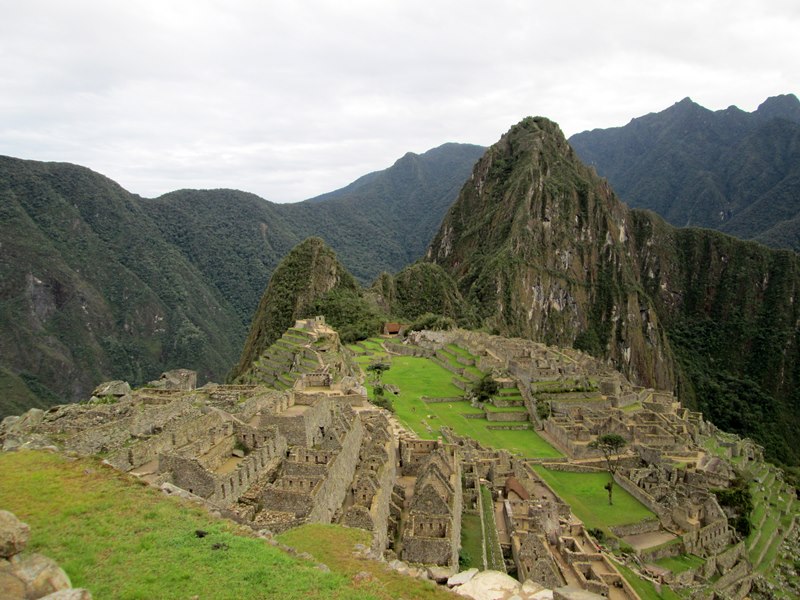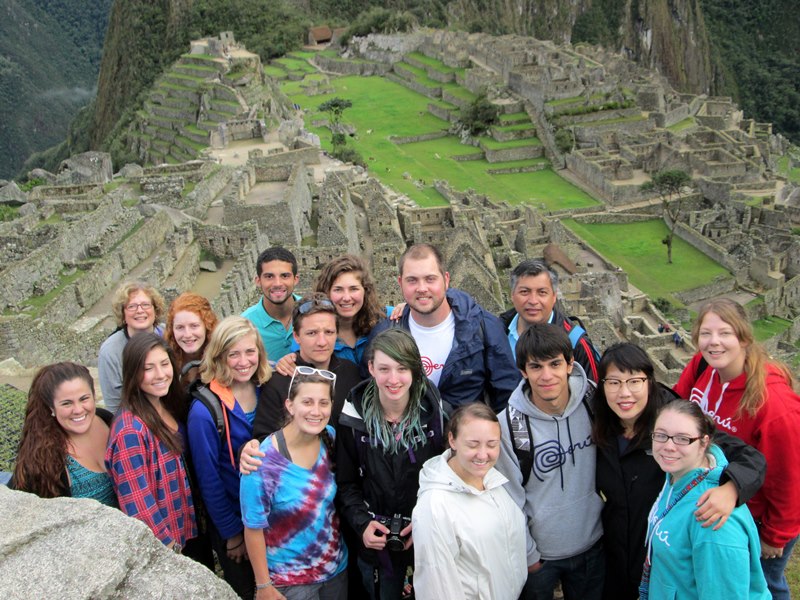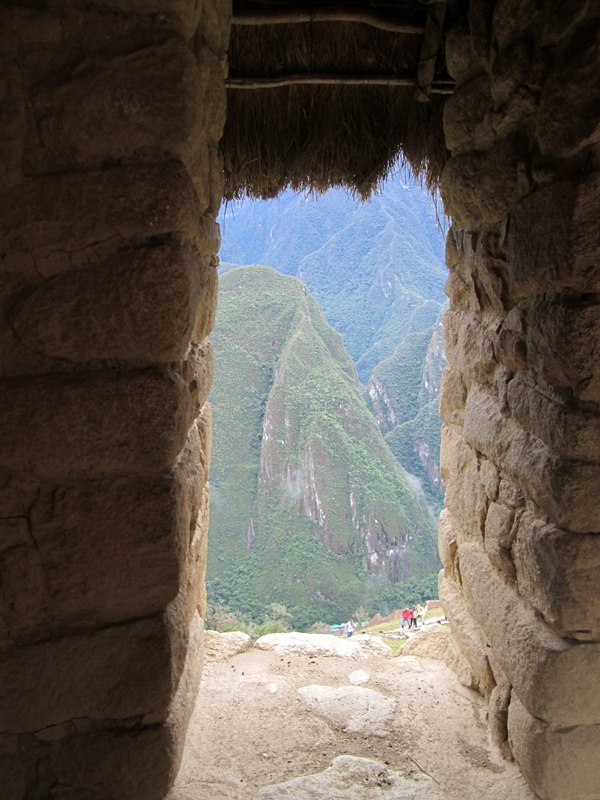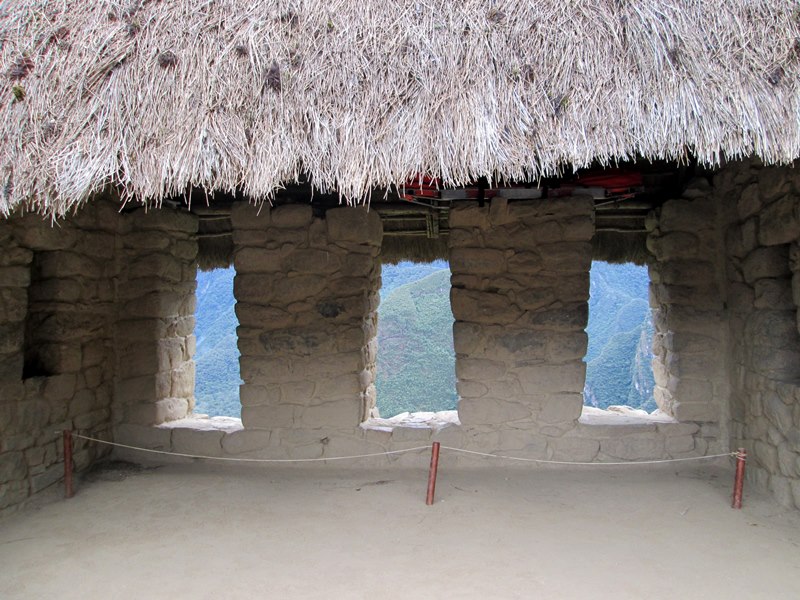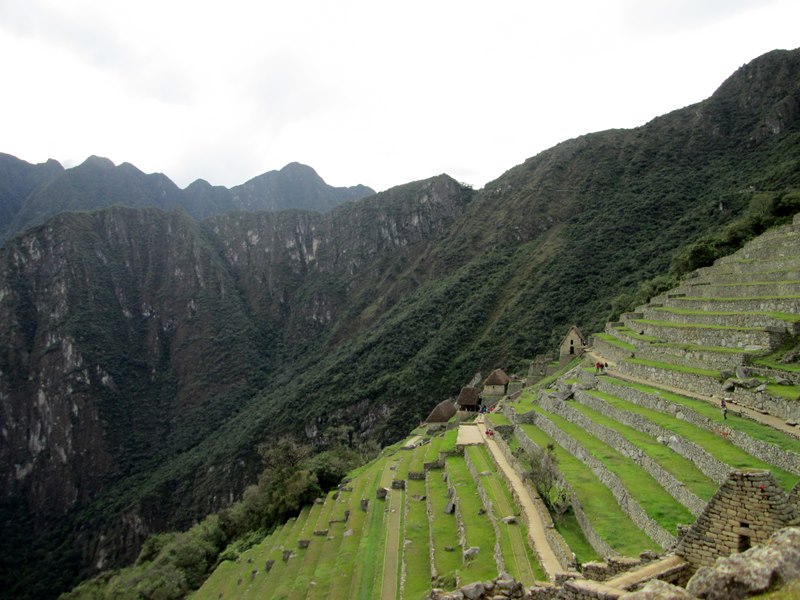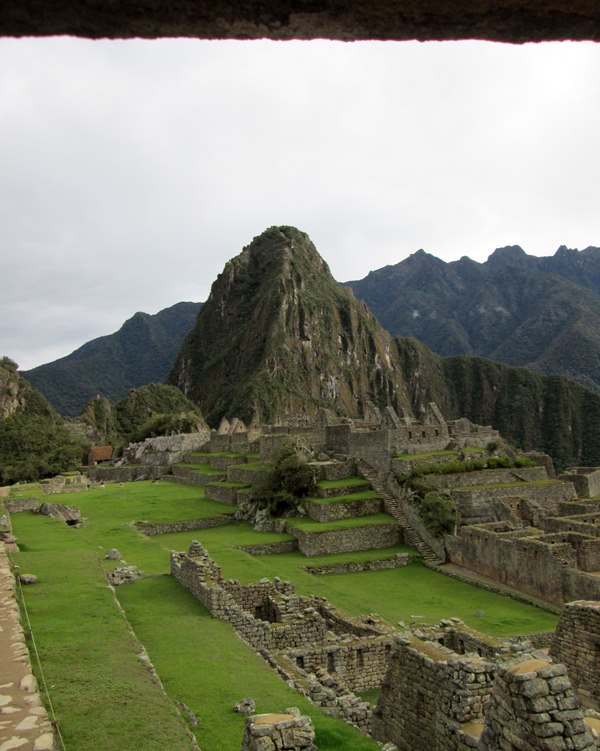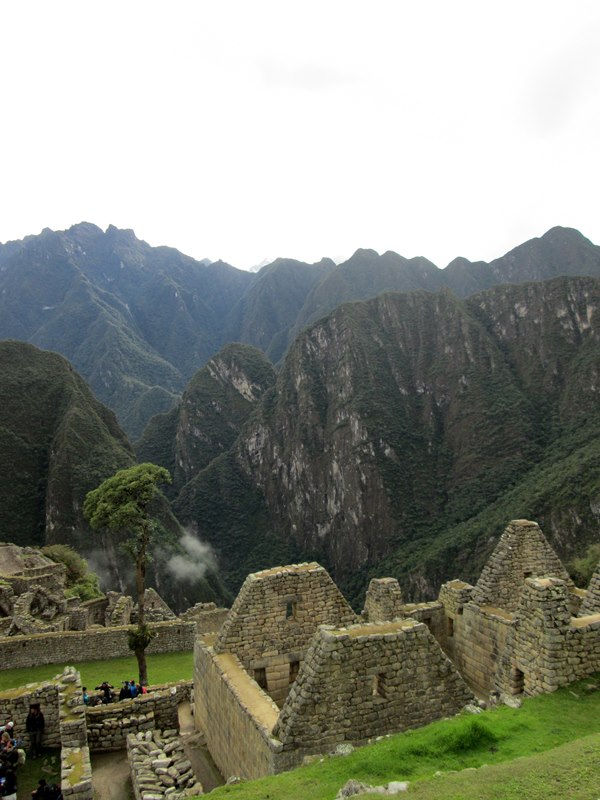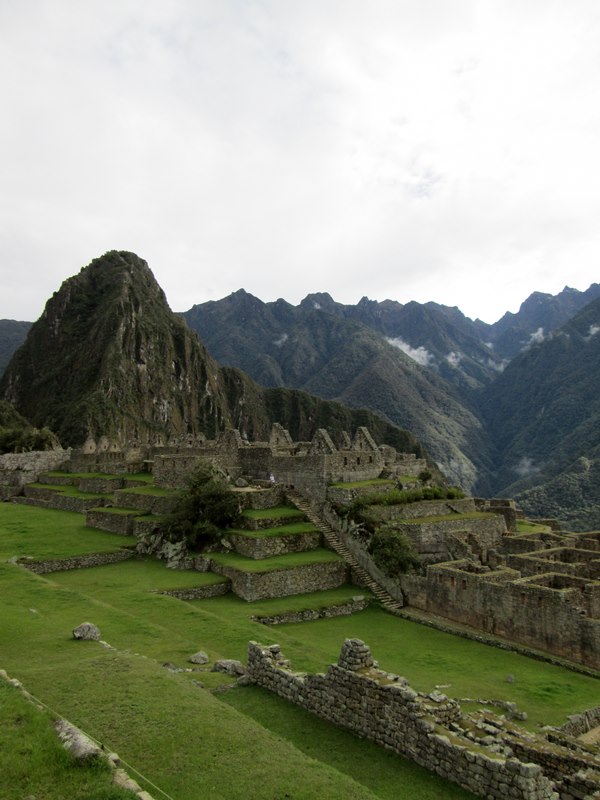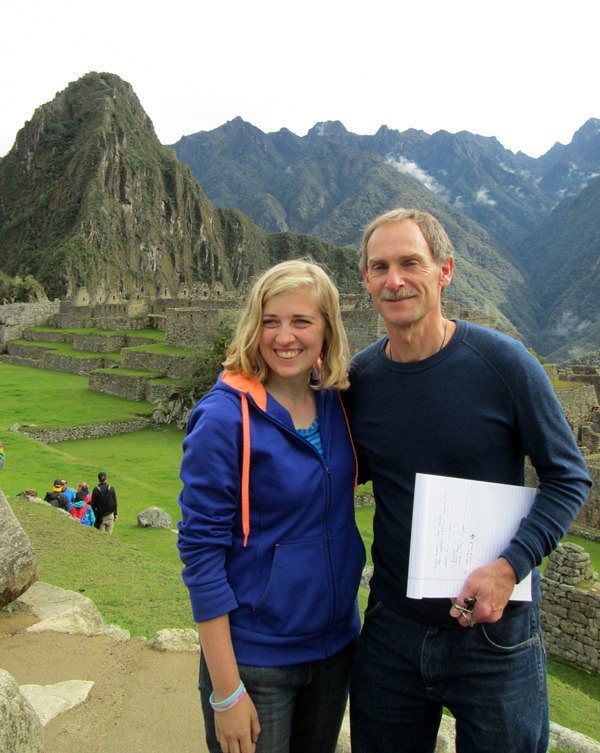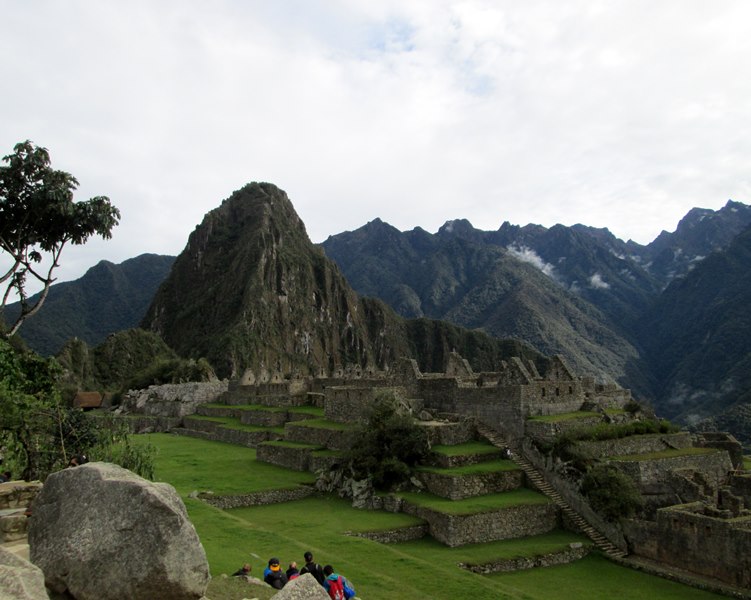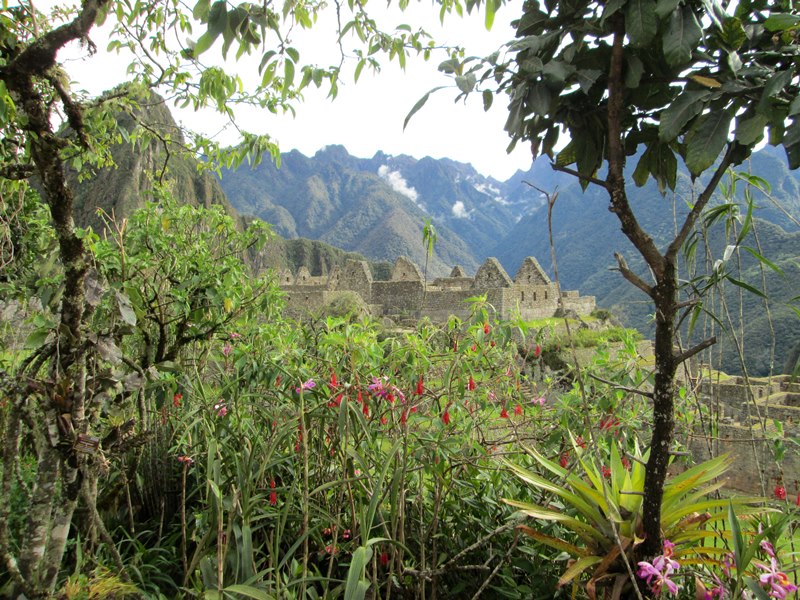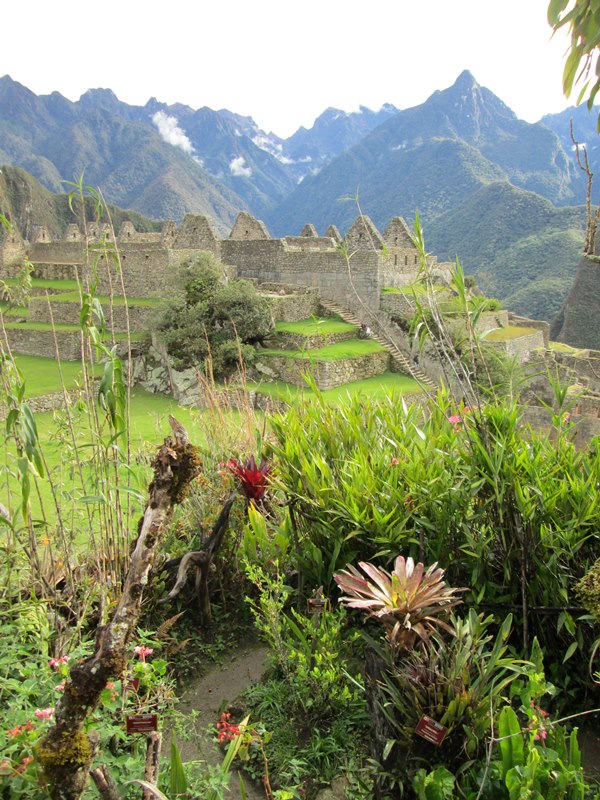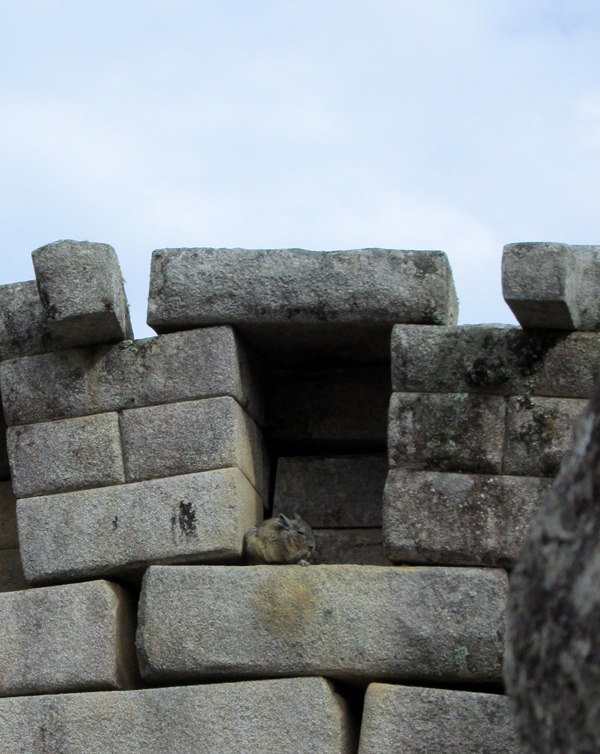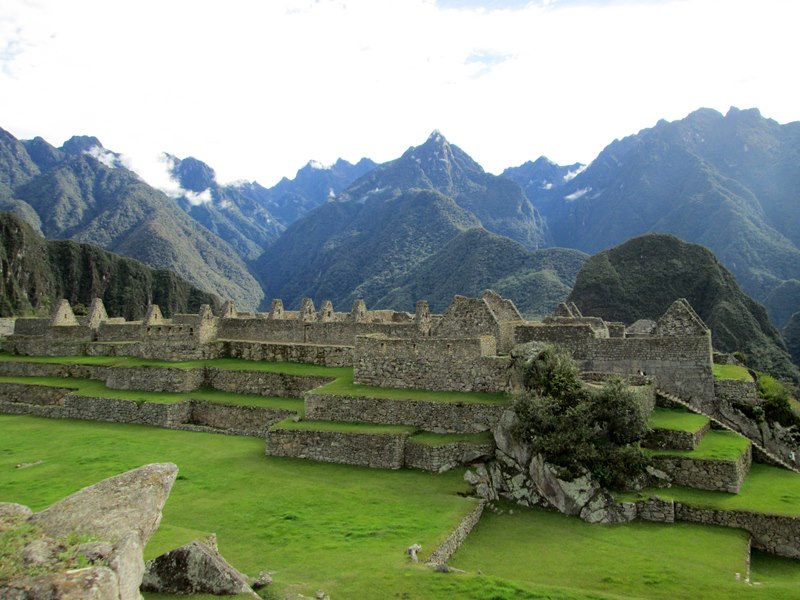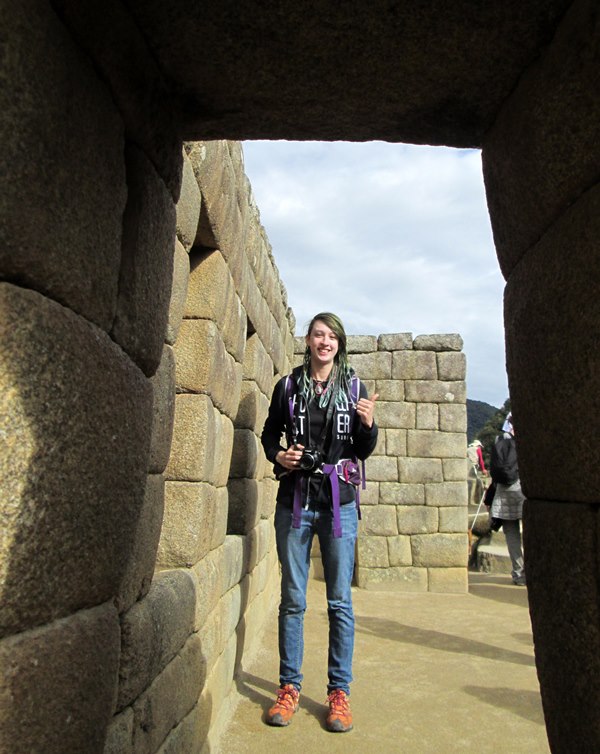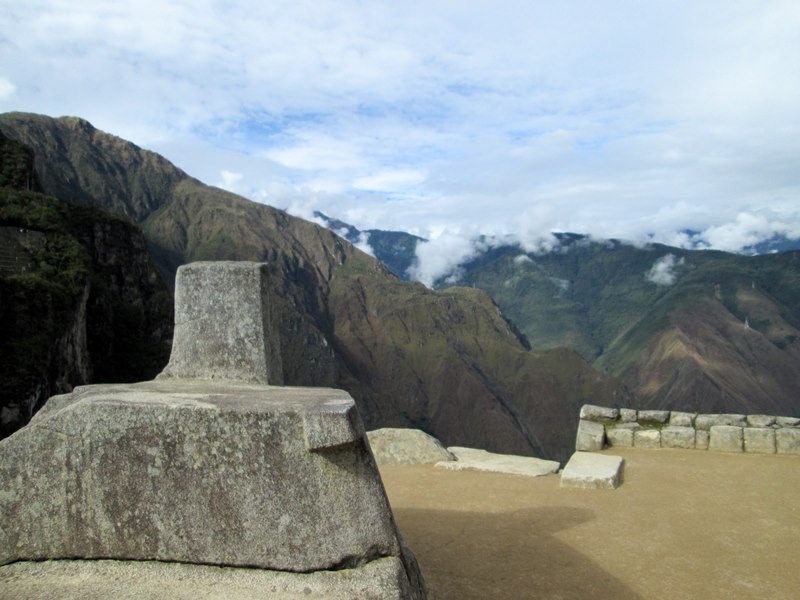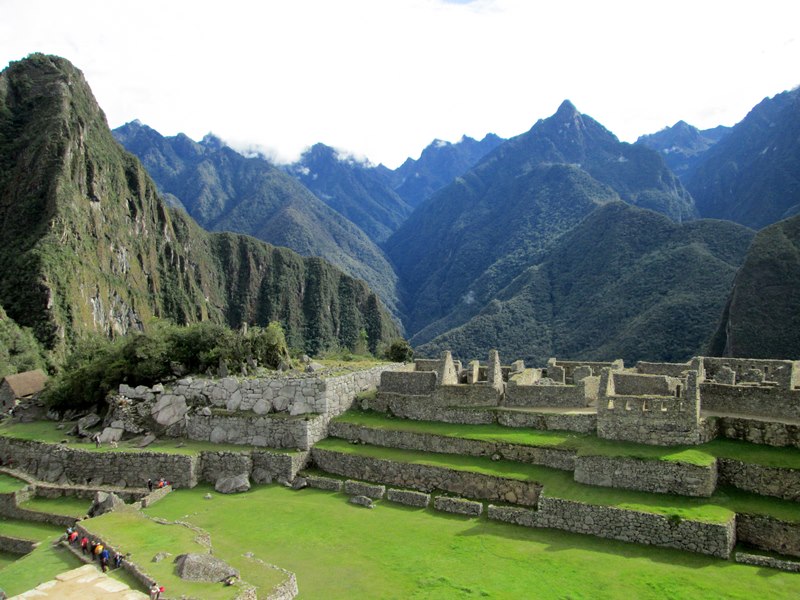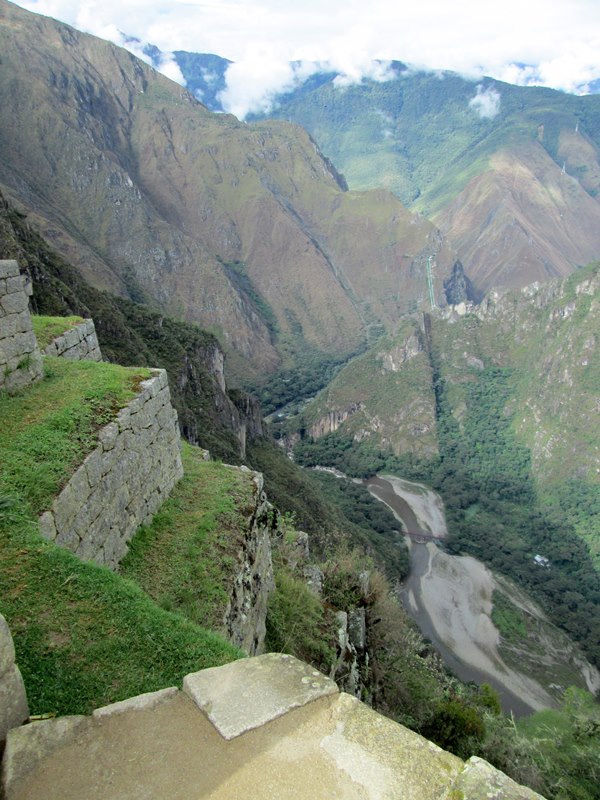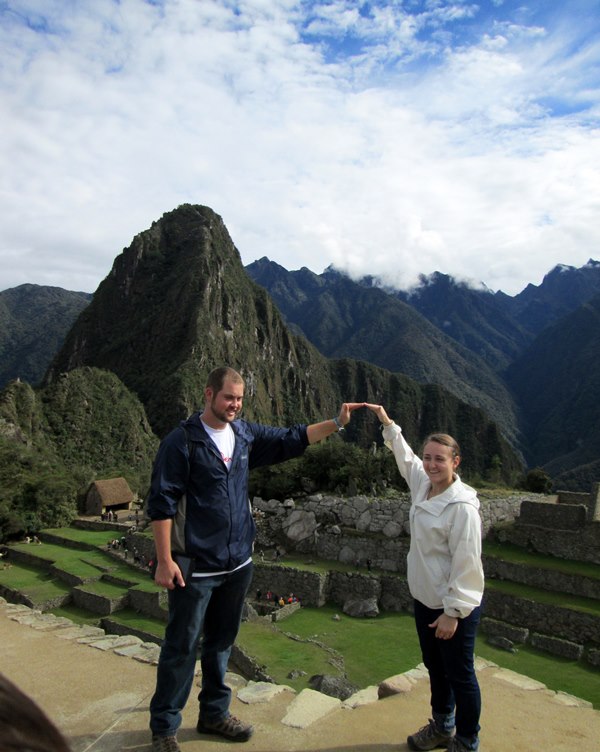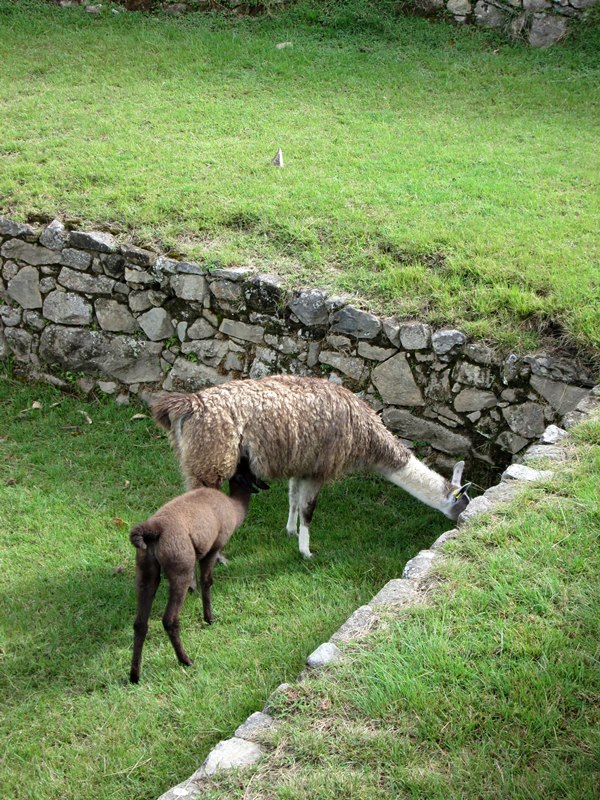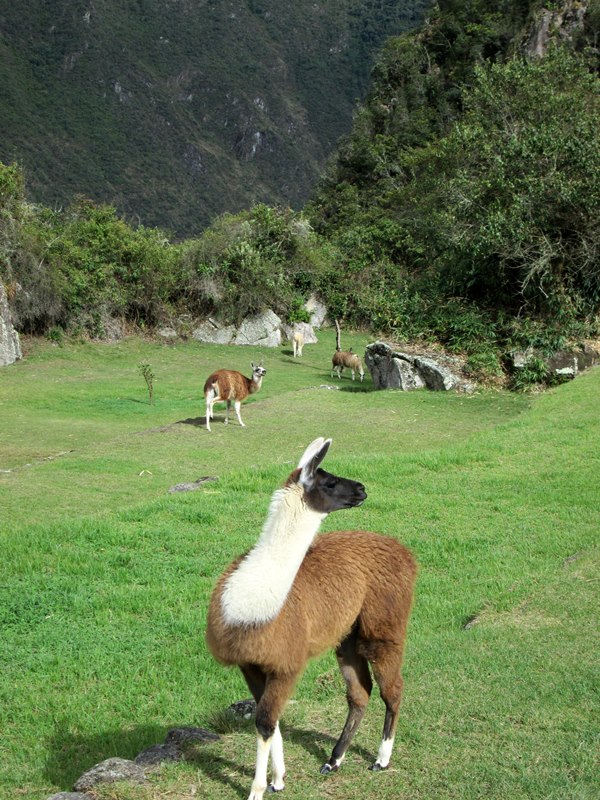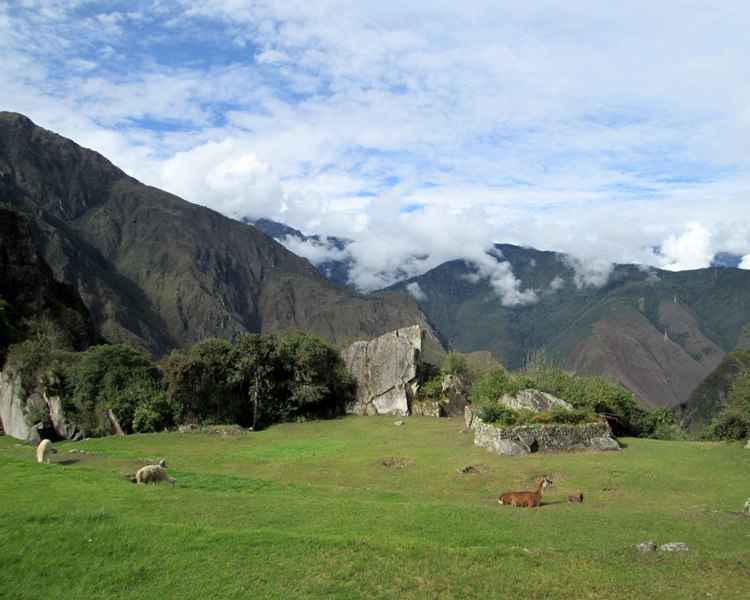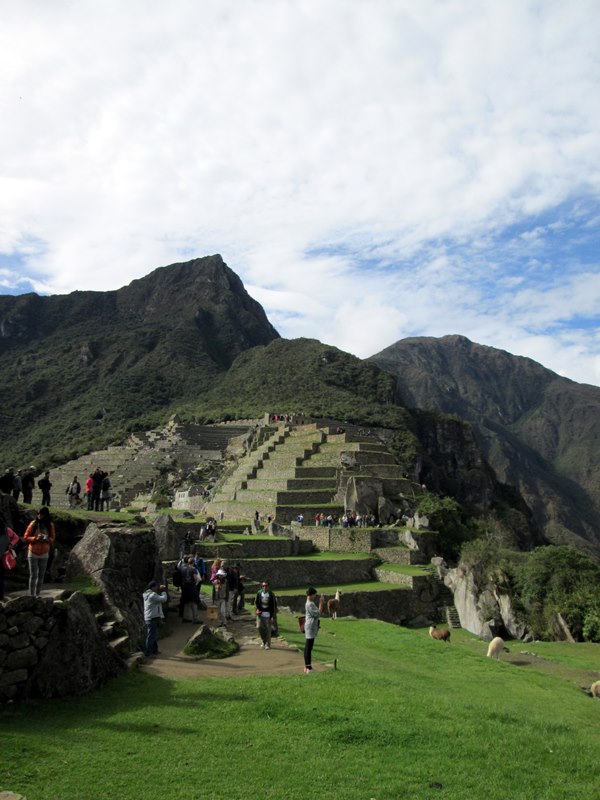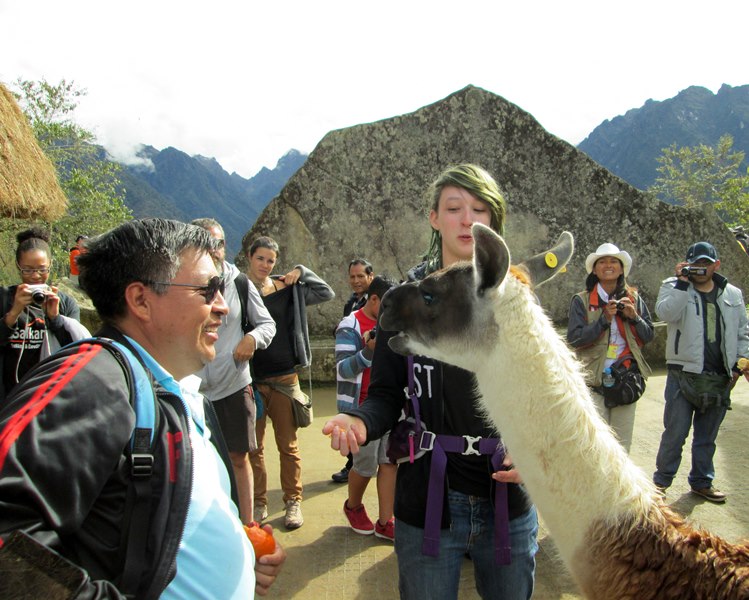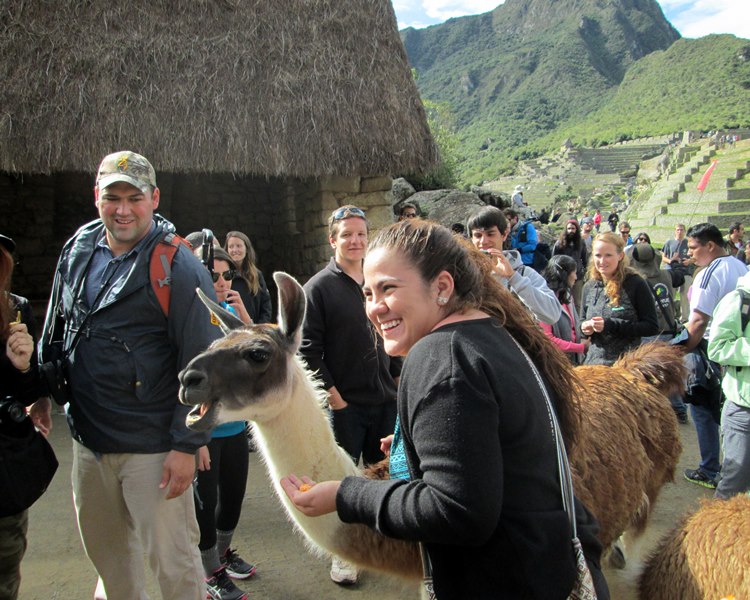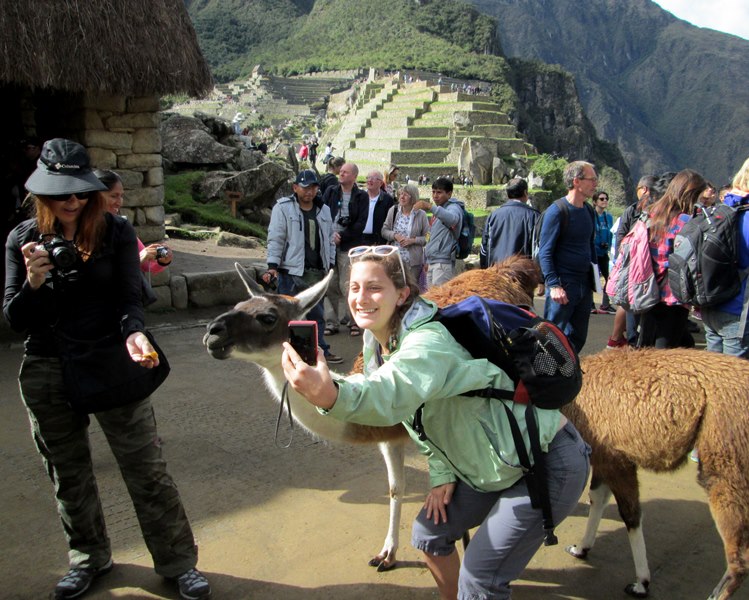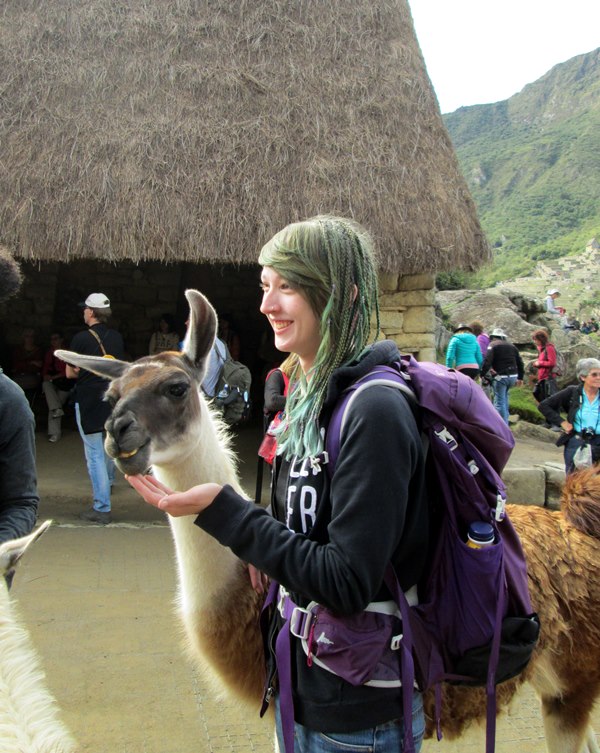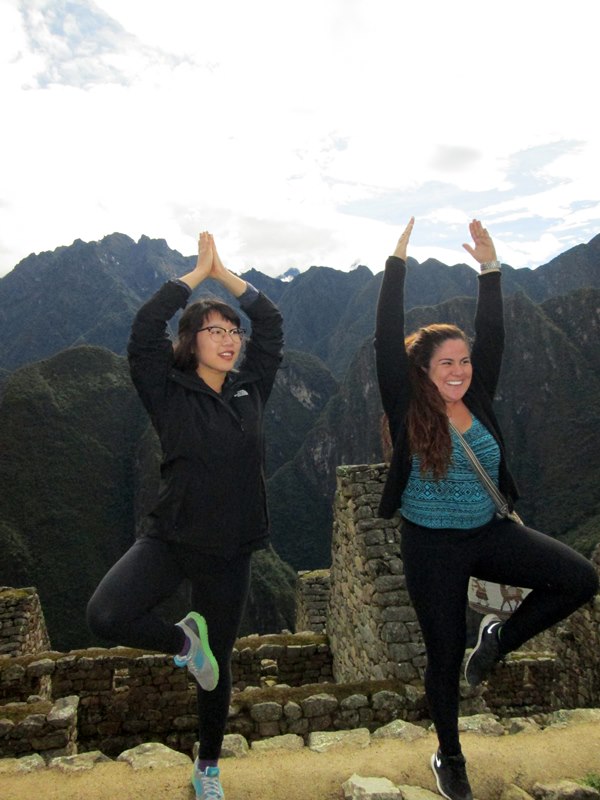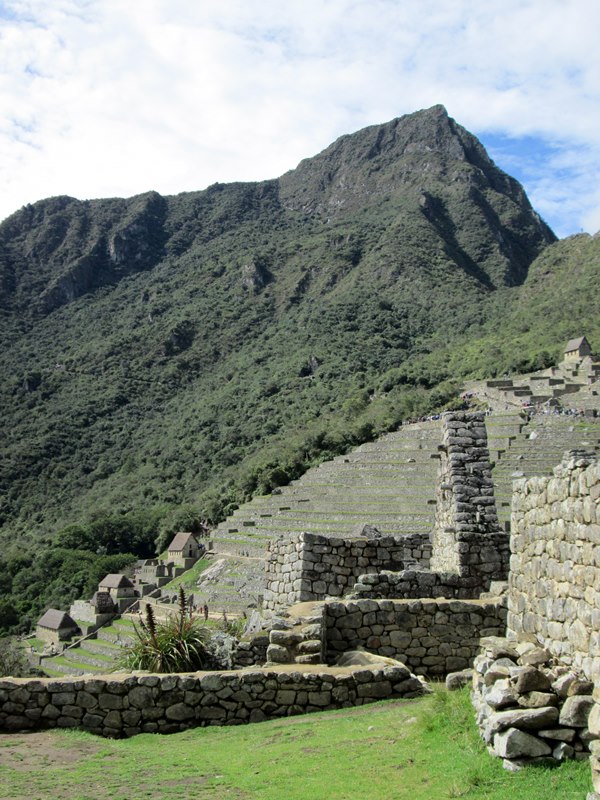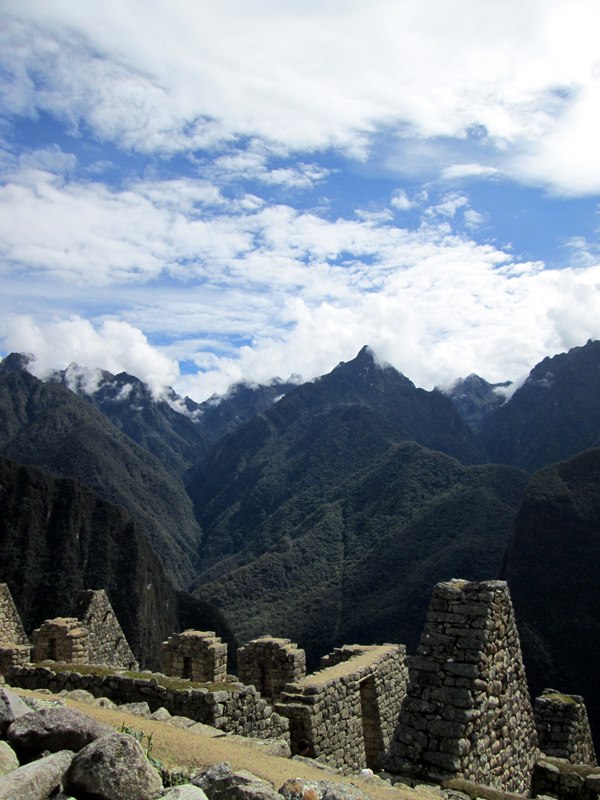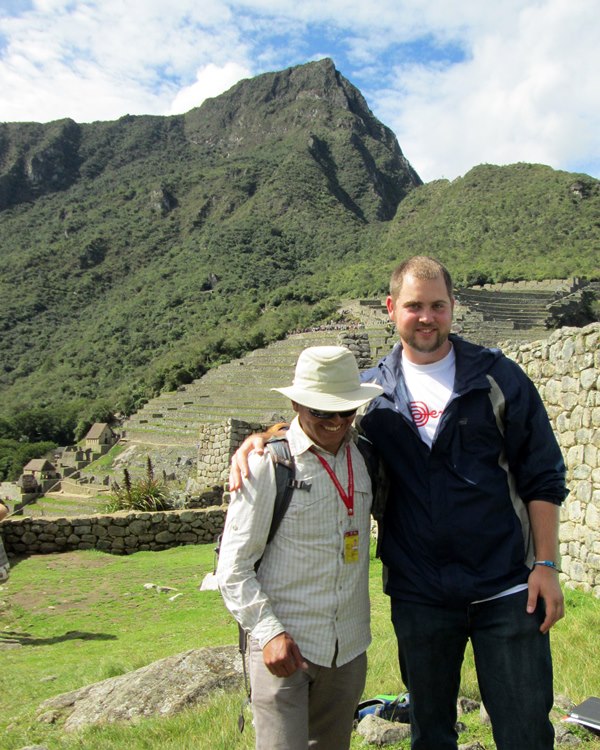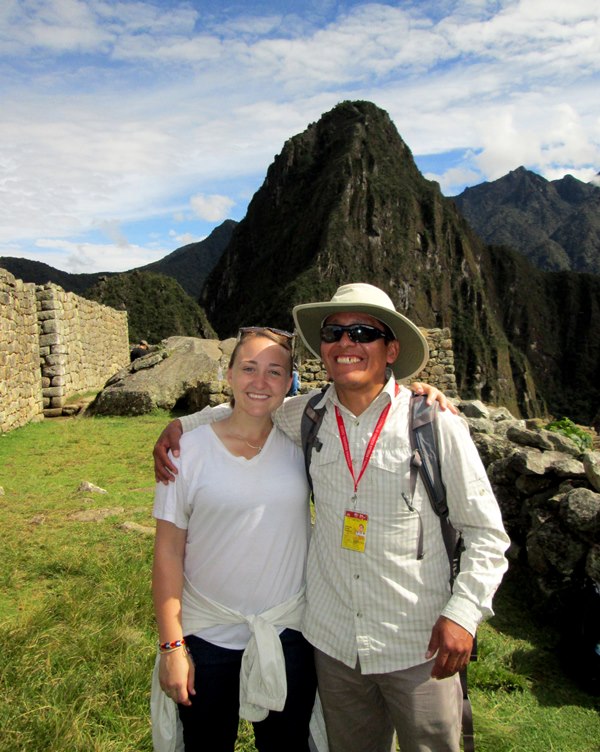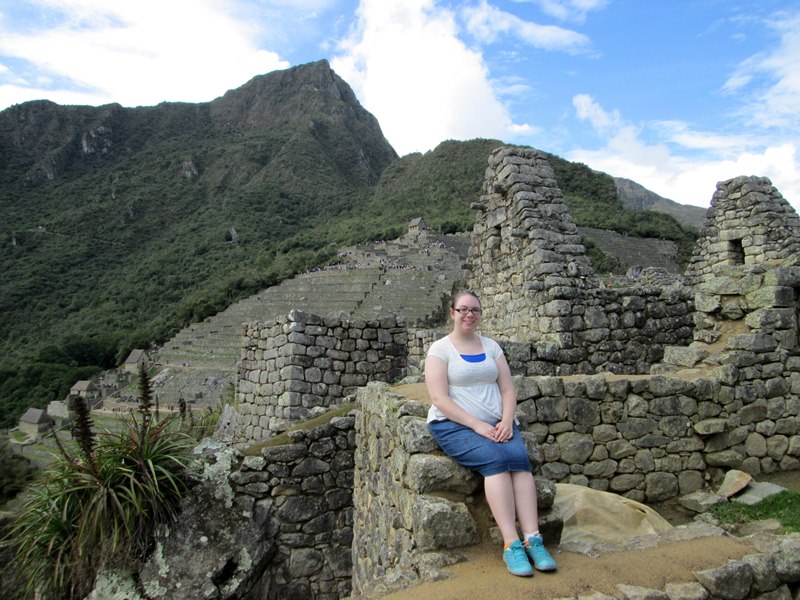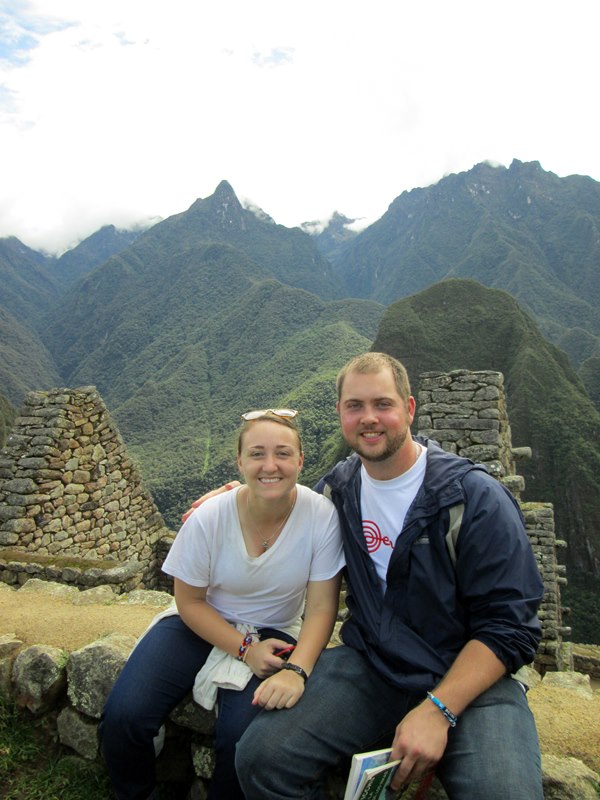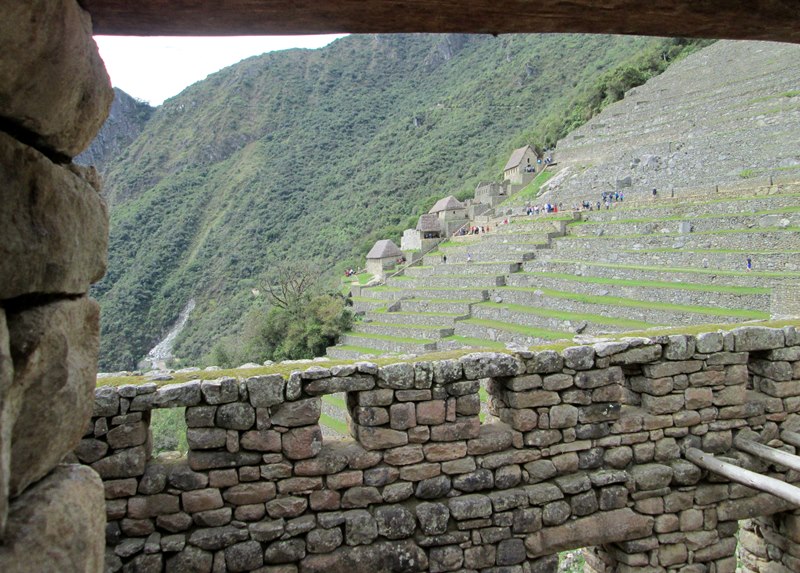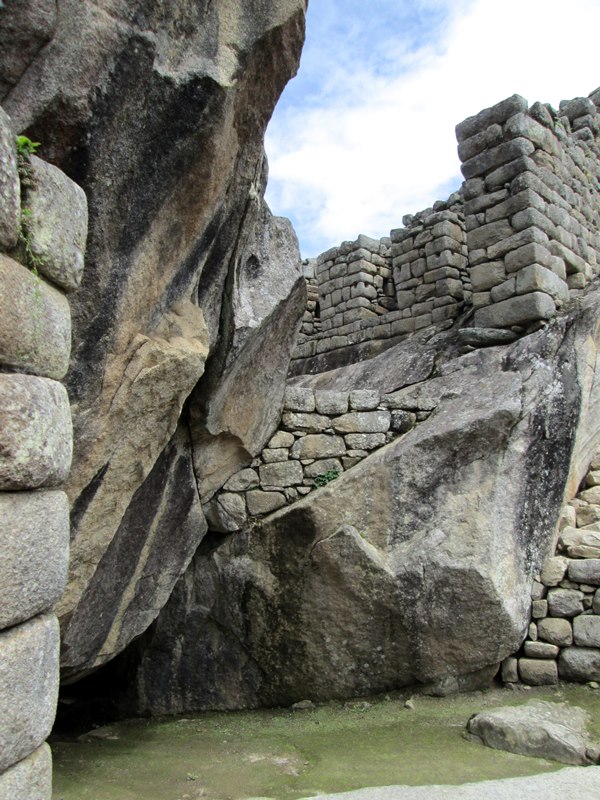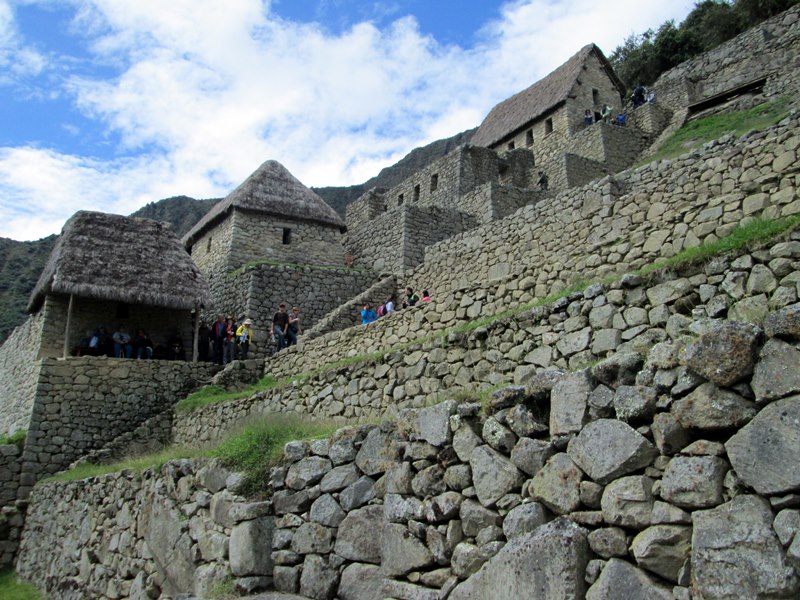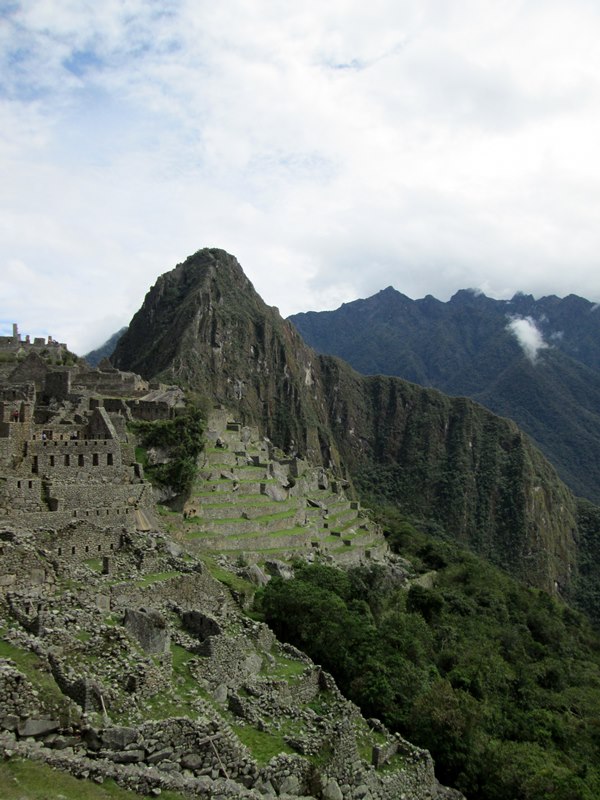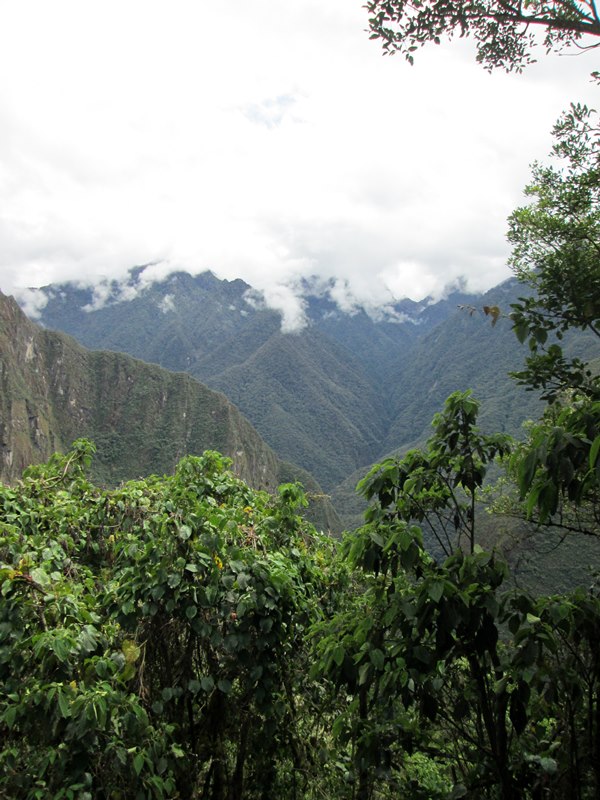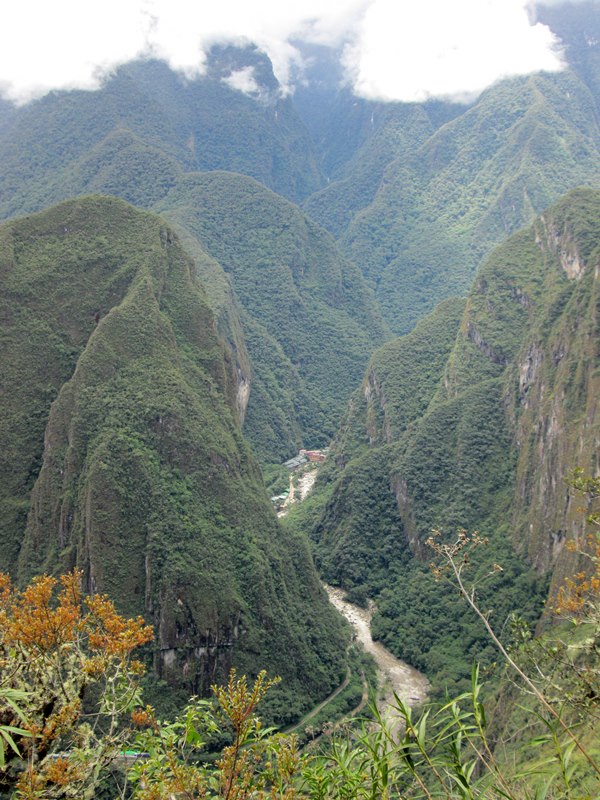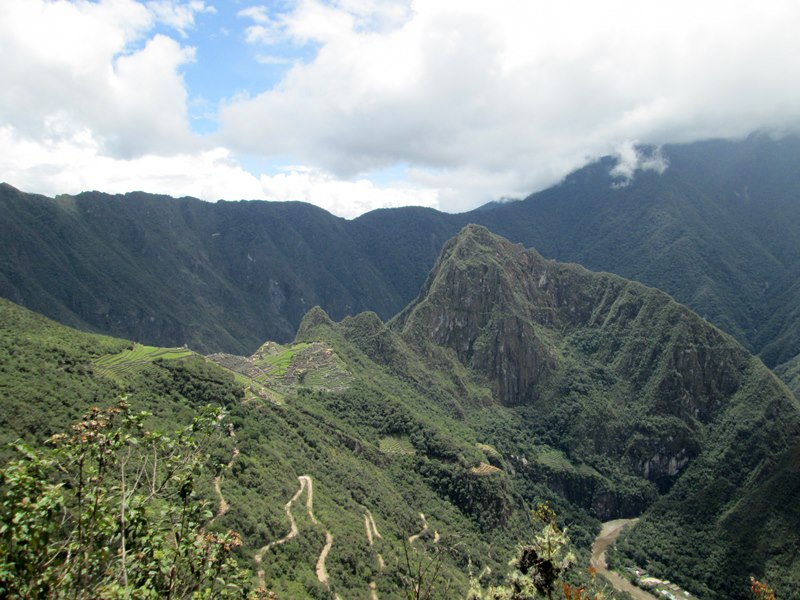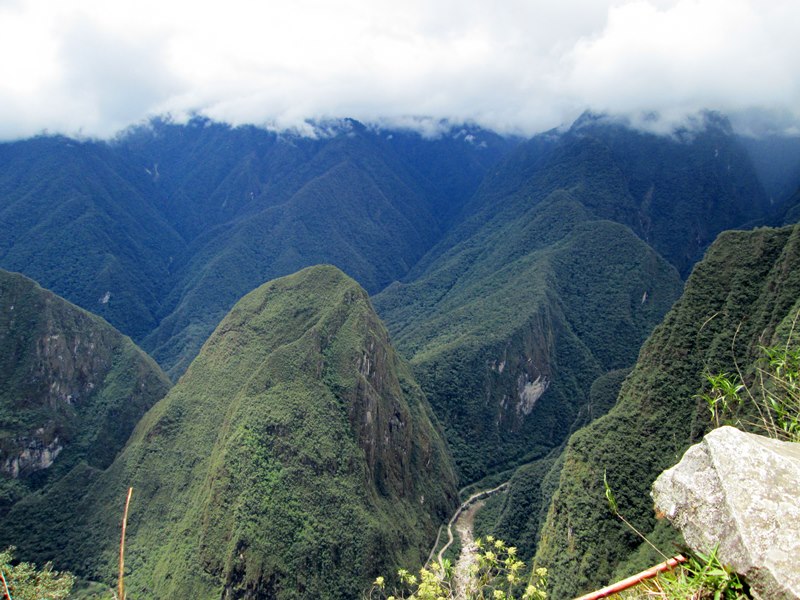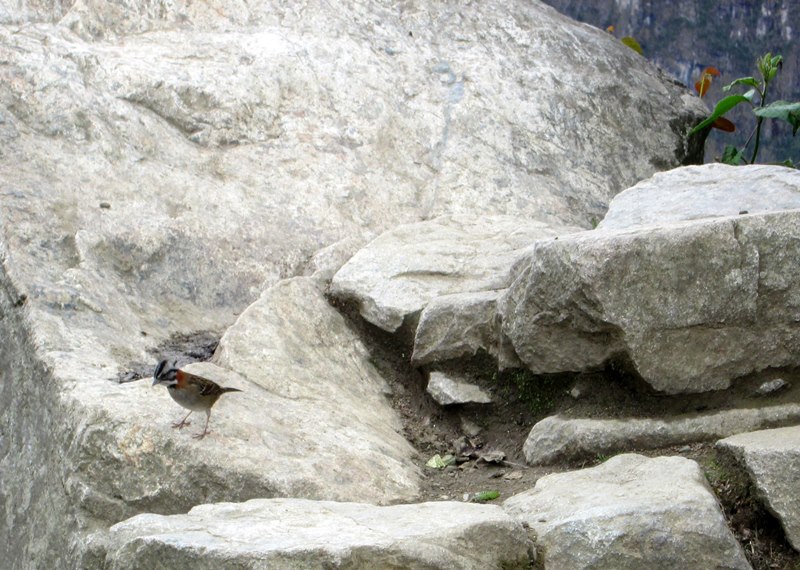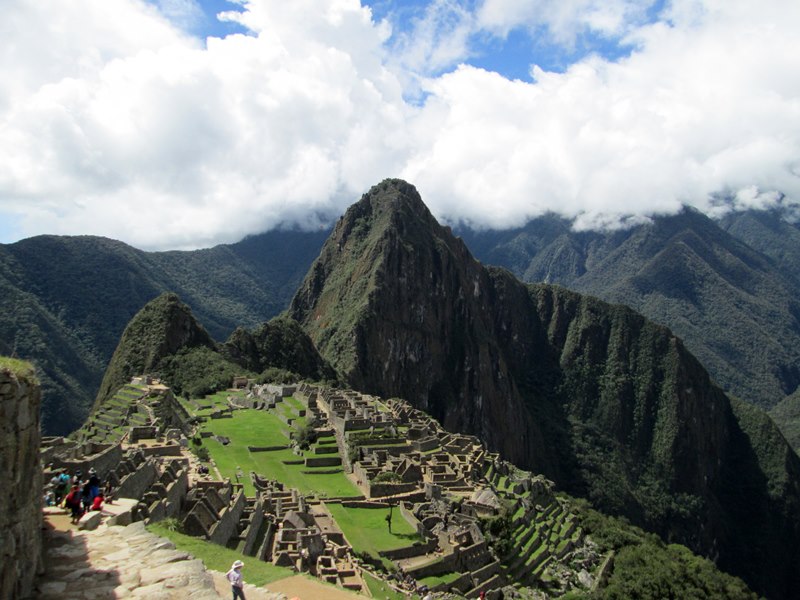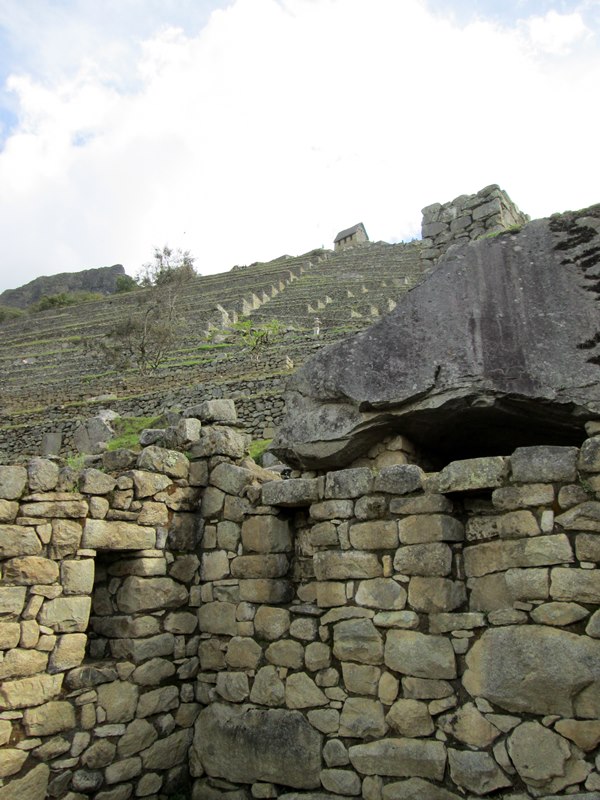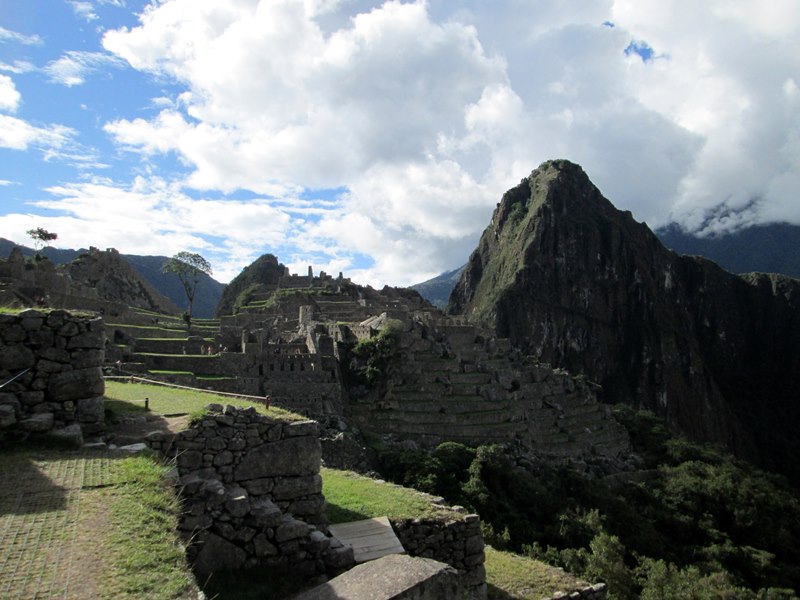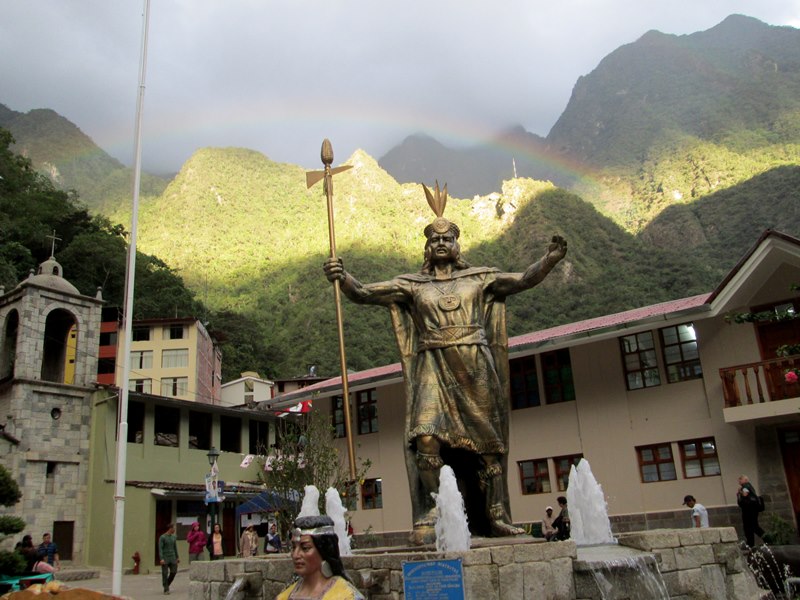Rising Early to Make the Most of a Day at Machu Picchu
On the evening before we visited Machu Picchu, our guide, Abraham Quispe Corrales, reminded us that the chance to see this mountaintop retreat, for most people, happens only once, if at all, and we should be prepared to make the most of the opportunity. He emphasized that point as he also announced that we should be getting up around 4 in the morning to be ready to leave the hostel by 5.
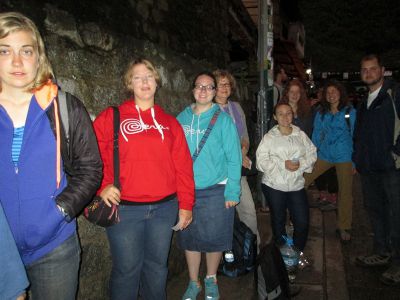
The night was short, but we caught an early bus and arrived on the grounds of Machu Picchu soon after 6, part of the early vanguard. We watched the sun rise over the Temple of the Sun, the Room of the Three Windows, the ceremonial baths, the agricultural terraces and the vast residential complex.
We took photos from the prime spots before tourists filled in the frames.
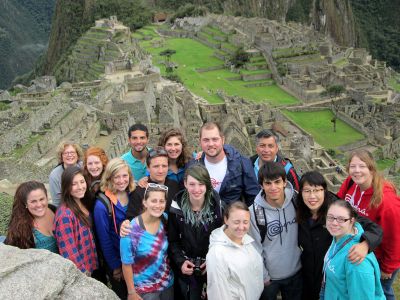
Taking in the grandeur of the place, Bryan put it well: “These Incas are killing me.”
Machu Picchu, as the author of one of our textbooks noted, was like a Camp David for Incan royalty, a place to get away from the crowds and the stress; it was also a religious center where festival days and astronomical events were celebrated. The site includes about 200 buildings. In the 15th century, the site may have been a bustling retreat for 500 people at a time, with the Incan leader Pachacuti holding court.
For the first couple of hours, Abraham provided a introductory tour. He explained that the American professor and adventurer Hiram Bingham made the remote site known to the outside world, in 1911, through his famed expeditions, but that we should not make the mistake of calling him the discoverer of Machu Picchu. Local people knew what was there, if not its implications.
Even here, communication technology is present. Abraham’s phone rang midway through the tour. “Hermano,” he said, “estoy en Machu Picchu.”
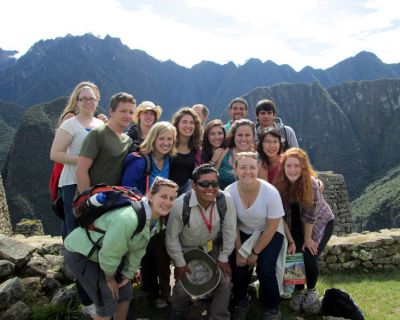
Abraham’s role as our guide ended here. Before he left, he told us a little more about himself: that he is 33; that he had wanted to be a lawyer, but that he became a tour guide when that career path in law did not open. “Things happen for a reason, my friends,” he said. “English was my favorite subject in primary school.”
“You have no limits,” he said. “You are visiting another country, another culture, with opens hearts and open minds. Share this good experience with others. Change the world. This moment is your moment.”
Soon enough, we were on our own to explore the grounds. If they wished, students could stay at the retreat until 5:30, when the last bus would switchback its way down the mountain to Aguas Calientes. A few students chose to walk down instead, an hourlong hike.
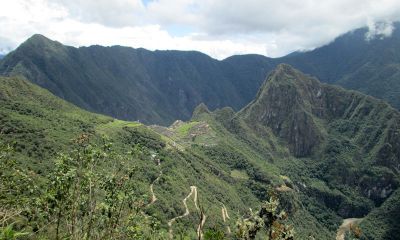
Two other people hiked up to the Sun Gate, which offers a panoramic view of Machu Picchu, and then found an empty room in the residential complex. In a room surrounded by stone walls and open to the sky, they took a midafternoon nap. After all, the day had started at 4 a.m.
Photos and Editing by Karen Stoltzfus


